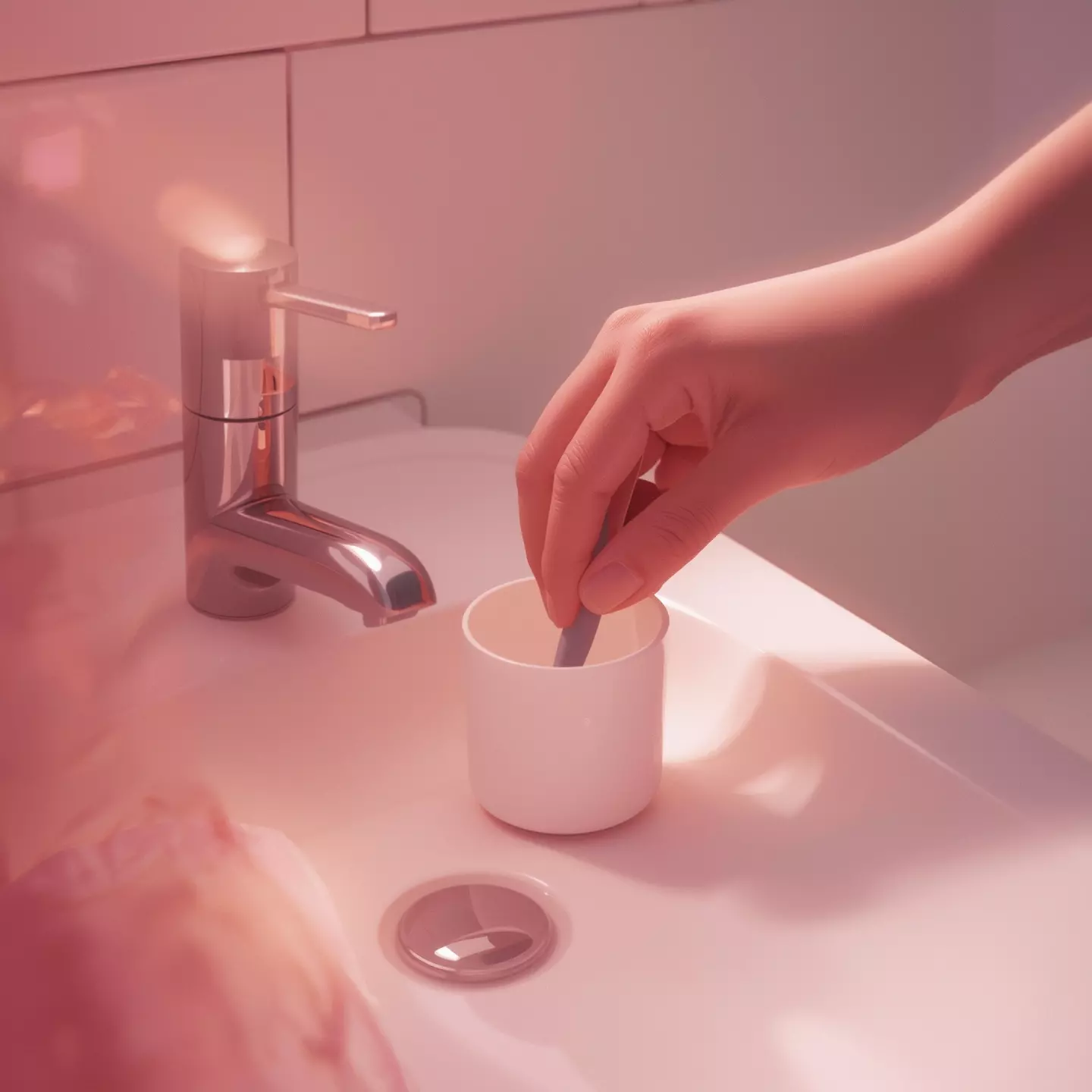Table of Contents
There you are, standing in the bathroom, toothbrush in hand, staring at the mirror like it’s a mountain you can’t climb. You know what you need to do—two minutes of brushing, rinse, spit, done. But in the first days after a breakup, even the smallest rituals feel like heavy labor. You may wonder why brushing your teeth feels hard after a breakup. You’re not imagining it. You’re not lazy. You’re not weak. You are grieving, and grief rearranges the body and brain in ways that make even the simplest tasks feel monumental.
Why brushing your teeth feels hard after a breakup

When heartbreak strikes, your brain doesn’t operate the way it did before. Emotional distress hijacks focus and memory, leaving you distracted, foggy, and drained.
The same system that once let you move on autopilot—pick up toothbrush, squeeze paste, brush—is now interrupted by waves of panic or looping thoughts about your ex. Even the “easy” steps feel like trudging through mud.
Heartbreak is not just emotional—it registers as physical pain.
Research shows rejection lights up the same parts of the brain that respond to actual injury. That’s why your chest feels heavy, your stomach churns, or your whole body seems exhausted.
Standing at the sink, lifting your arm, even holding your balance in front of the mirror can take more than you realize. This is why brushing your teeth feels hard after a breakup—your body is busy surviving.

Coping with the First Month After a Breakup
Let’s examine coping with the first month after a breakup in: Shock, Panic & implosion, Managing Daily Overwhelm (Survival Mode), The No-Contact Gauntlet, Emotional Outbursts – Rage, Crying & “What Is Wrong With Me” Moments, Coping Alone vs Reaching Out and Your First Glimpse of Hope
Tap here to read more →No, you are not broken
It’s tempting to think, “If I can’t even brush my teeth, something must be wrong with me.” But this is not weakness—it’s biology. Your body has rerouted its energy toward processing loss. The brain narrows its focus onto the wound of heartbreak, the same way it would if you had a serious cut or burn.
It’s not that you don’t care about hygiene; it’s that your system is in triage.
Struggling with daily care isn’t proof of failure, it’s proof of healing in progress.

Meeting yourself with compassion
Here’s where self-compassion becomes medicine. Instead of piling shame onto an already hurting heart, you can pause and say: “This is hard. Many people feel this way. It won’t be like this forever.”
Research shows that kindness toward yourself lowers stress and builds resilience.
That means:
- Even if you only brush once today instead of twice, that’s a step forward.
- Even if you just hold the toothbrush and put it down, that counts as showing up for yourself.
Tiny wins matter. Healing begins in those small, quiet acts—not because the act itself is grand, but because it reminds you that you are still here, still moving, still worthy of care.
Healing after a breakup isn’t about flawless routines or perfect strength. It’s about weathering the collapse and slowly rebuilding.
Some days that rebuilding looks like crying in bed. Other days it looks like brushing your teeth after an hour of staring at the sink. Both count. Both are part of the blueprint.
And one day soon, you’ll brush your teeth without even thinking about it—proof not just of a cleaner mouth, but of a lighter heart.
FAQ
Q1. Why does brushing my teeth feel so hard after a breakup?
After a breakup, your brain is overwhelmed by grief and emotional stress, which disrupts focus and motivation. Since heartbreak also triggers physical pain responses in the body, even simple routines like brushing your teeth can feel exhausting.
Q2. Is it normal to struggle with basic self-care after heartbreak?
Yes, it’s completely normal. Breakups trigger survival mode in your body, which prioritizes processing emotional pain over everyday tasks. This doesn’t mean you’re weak—it means you’re healing.
Q3. How can I motivate myself to brush my teeth when I feel too drained?
Start small—just holding the toothbrush or brushing for a few seconds counts as progress. Lowering expectations and practicing self-compassion helps reduce pressure, making it easier to rebuild your routine step by step.
Q4. Will struggling with self-care last forever after a breakup?
No, it won’t. The intensity of grief lessens over time, and as your mind and body begin to heal, daily tasks become easier again. With patience and gentle consistency, brushing your teeth and other routines will feel normal once more.
Scientific Sources
-
Claire C. Collamar (2025): The Impact of Emotional Distress from Heartbreak on Cognitive and Behavioral Functioning: A Case Study
Key Finding: Emotional distress following a breakup can impair cognitive processes (like memory and concentration) and disrupt daily behaviors—including basic self-care routines.
Why Relevant: It directly supports the idea that post-breakup dysfunction makes brushing your teeth feel unexpectedly difficult.
https://www.researchgate.net/publication/388997515_The_Impact_of_Emotional_Distress_from_Heartbreak_on_Cognitive_and_Behavioral_Functioning_A_Case_Study -
Naomi Eisenberger & Matthew Lieberman (2008): Neural responses to social rejection
Key Finding: Emotional rejection activates the brain’s pain-processing regions, producing real physical sensations like chest tightness, exhaustion, or nausea.
Why Relevant: Physical pain and exhaustion after heartbreak can make simple actions—like standing at the sink—feel much harder than usual.
https://en.wikipedia.org/wiki/Broken_heart -
Kristin Neff (2003): Self-Compassion: Concept and Measures
Key Finding: Higher self-compassion is associated with better emotional resilience, and lowers rumination, depression, and anxiety.
Why Relevant: Recognizing that struggling with self-care is normal and responding with self-compassion prevents additional self-criticism and helps healing.
https://en.wikipedia.org/wiki/Self-compassion
- How to Sleep After a Breakup: Powerful Ways to Calm Your Racing Mind

- The 1 Task a Day Rule: A Powerful Survival Strategy to Heal After a Breakup

- Why Cleaning After a Breakup Feels Like Powerful Grief-Proofing for Your Space

- The One Clean Surface Rule: A Powerful Way to Heal After a Breakup

- Surviving Work After a Breakup: Powerful Tips to Heal and Stay Strong

- The Healing Power of a Shower: Your Mental Reset After Heartbreak

- Why Brushing Your Teeth Feels Hard After a Breakup – And the Surprising Truth That Will Comfort You

- Breakup Morning Routine: Simple Steps to Heal and Move On

- The Breakup Survival Guide: Overcoming Loss of Appetite After Heartbreak


Leave a Reply